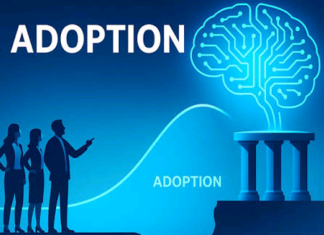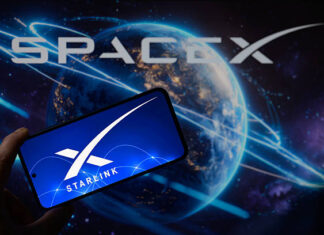When you purchase through links on our site, we may earn an affiliate commission. This doesn’t affect our editorial independence.
This article is heavily influenced by MKBHD’s YouTube video iPhone vs Android (The Real Winner); his review focused on prioritizing the subjective needs of the end-user through a rubric. In simple terms, he created a fantastic system for identifying which smartphone platform would suit you. The never-ending debate about which smartphone platform is the best is no news. While several reviews, comparisons, and tests have been done, the real question is often left unanswered: how do I choose what’s good for me?
Marques created a system that allows users to customize their judgment of the smartphone platforms. The system allowed each user to rank from 1 to 5 in the category according to preference and need. Therefore, no two users could have the same ranking. The rubric rests upon his exhaustive examination of each subset for both platforms; let’s dive in.
Customization
For most people, their smartphones are a reflection of themselves. The colors, themes, and widgets. The freedom to make your device your image is something Android has as a strength because of the vast settings and freedom available. I mean, not being able to change the icon side ad position—sucks. Apple has recently loosened its leash, but it’s still not as great as you’ll get with the Android space. If you are as intentional about customization as I am, rank it. I give it 5 for me.
Feature
There are tons of features on smartphones, each serving a specific need, targeted at creating ease and productivity. Camera features, for example, are a good place to start. The outrageous zoom capabilities of recent Android smartphones push the boundaries of mobile photography, effortlessly capturing crisp details from miles away—a feat that iPhones, even with their polished image processing, simply can’t match at the same level. With 100x Space Zoom, periscope lenses, and AI-powered stabilization, Android flagships like the Galaxy S24 Ultra and Pixel 8 Pro transform what was once the domain of professional cameras into a pocket-sized powerhouse. While Apple refines its imaging software for natural-looking shots, Android’s sheer hardware muscle lets users bring the impossible into focus.
Another feature department is battery life and charging. Android smartphones flex their dominance with devices like Xiaomi and Realme pushing the limits with 120W to 240W fast charging, refueling a phone from 0 to 100% in under 10 minutes. iPhones don’t come close with their fastest charging at around 27W, often requiring nearly two hours for a full charge—a far cry from Android’s lightning-fast refueling. However, the privacy features from iPhones like ‘hide my email’ are truly impressive. Sadly, they don’t make up for the lost steam in other departments, so if features are huge for you, Android will be it. I rank it 3 for me—I love me some split screen.
Ease of use
This is a category where I believe most people will be divided. Mostly because whichever device you are using will win ease of use because you are used to it. But let’s say a new SmartPhone user, which would he adjust to the easiest? Marques particularly pointed out that iPhones should take this category home because of their consistent simplicity. from home screen icons to the interface. I presume because of the vast number of skins found under the Android belt, different brands don’t necessarily have to be consistent, like the iPhone, and change things easily. Let’s just say simplicity isn’t Android’s biggest suite. For me, I rank it 2 because I can adjust.
Pricing
Now, this category wasn’t added by Marques, but it’s a deal-breaker for me, especially with the discontinuation of the iPhone SE. Affordability is so important; there is no fantasizing about a device I cannot afford. Android has wider varieties in this department; as such, I won’t stress it. I rank it 3 because it’s a major for me.
App
Although both platforms have every major app, Android boasts almost x5 more apps. This is because it’s an open-source platform, allowing users to get apps from anywhere. This particular advantage would turn out to be what the iPhone is trying so hard to avoid. By screening apps and limiting sideloading, it hopes to increase the privacy and security of its users. Also, I heard app developers prioritize iPhones because of the ease of integration it allows. Android has too many devices in its catalog, so it’s more difficult to integrate. I can’t call this one because it’s really subjective. For me, I’ll stick to Android; I rank it 2 because it’s not major for me.
Ecosystem
I bet this is where every iPhone user was waiting for me to get to and rightfully so. It’s no news that the tech giant Apple is determined to ensure breathtaking seamlessness between its devices, from the Mac to the watch and pods and back to the phones. Google ecosystem on Android is decent, especially with the Google Workspace but I won’t sugarcoat it, iPhones are just… I rank it 2 because it’s not major for me.
Excitement
This is a complex category owing to the kind of community both platforms have created around it. The noise, lifestyle, and buzz the iPhone defines isn’t deniable though. The Android also rigs quite the excitement, especially the bigger brands, but the iPhone is singular. I rank it 1 because it’s a meh for me; I don’t care.
Updates
When it comes to long-term software support and ecosystem integration, Apple wins hands down. iPhones receive six to seven years of major iOS updates, ensuring longevity and security, whereas even the best Android devices often top out at four to five years of support. I rank it 2 because I care, but it’s not major for me.
For me, Android scored 13 points while iPhone scored 7. What of you?







